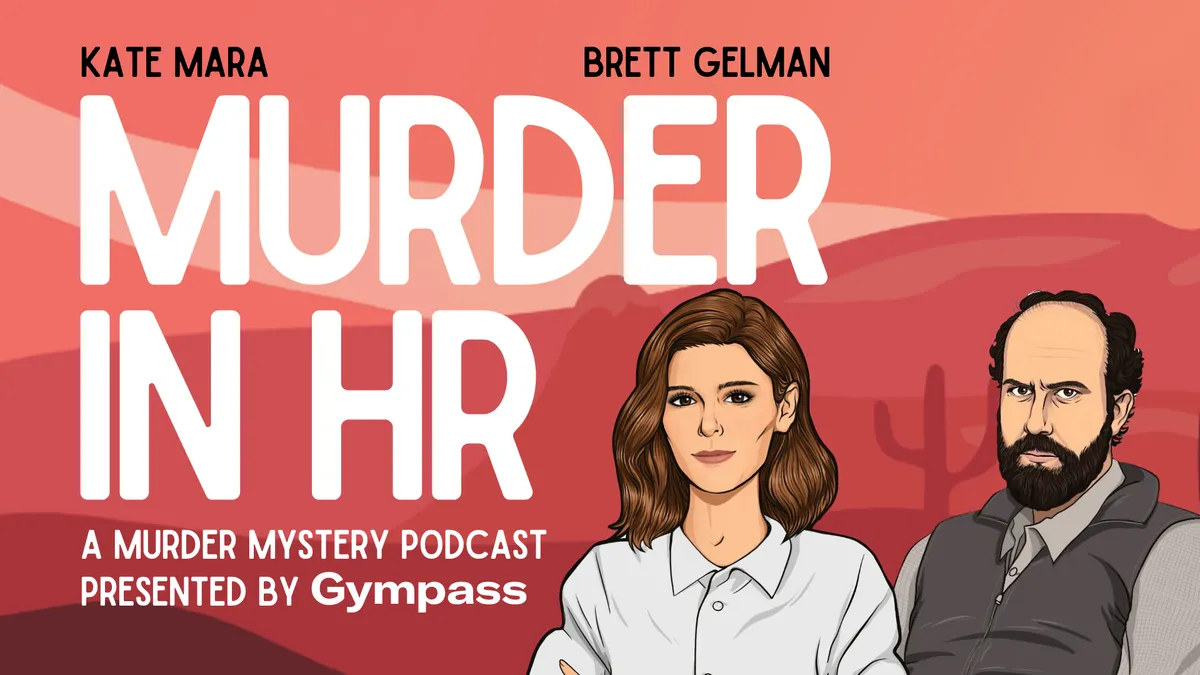Editor’s Note: ‘Happy Hour’ is an HR Dive column from Reporter Ginger Christ. Follow along as she dives into some of the offbeat news in the HR space.
If you’ve ever woken up day after day with a knot in your stomach, dreading going into work or logging onto your computer, terrified to face a callous or just plain cruel manager, you might know a thing or two about bad bosses.
I remember clearly a moment when my parents had come to visit and saw me wipe a tear from my face as I headed out the door in the morning. My dad, a longtime advocate of being loyal to your company and always being grateful to have a job, said, “Ging, it’s time to leave.” The company, not my house. It was one of the best professional decisions I’ve made.
While researching their new book, Bad Bosses Ruin Lives: The Building Blocks for Being a Great Boss, husband-and-wife team Ken and Debra Corey, conducted a survey on bad bosses. Nearly all of the 703 respondents (99.6%) said they had had a bad boss at some point in time.
Through interviews with more than 20 thought leaders (industry authors, chief people officers and learning officers), the Coreys identified 10 types of bad bosses:
- The Avoider: Doesn't show up for their people; ghosts them; doesn’t give them the time, attention and feedback they need to do their job and feel valued.
- The Ignorer: Doesn’t listen to what their people say; ignores input, ideas and perspectives and misses out on what they have to say, making them feel undervalued
- The Hoarder: Withholds and keeps information to themselves or shares it in ways that don't fully meet the needs of their people.
- The Unappreciater: Doesn’t show their people recognition, gratitude or appreciation, making them feel unvalued, invisible and unappreciated for their actions and contributions.
- The Pretender: Withholds the truth and any discomfort it could cause others in an attempt to please and be nice to them; gives answers they feel are wanted and fails to give them the honesty they need and deserve.
- The Blocker: Prevents or gets in the way of their people’s development and career progression, blocking them from achieving their goals, mastering new skills or contributing to the company’s success.
- The Firefighter: Deals with situations in a reactive and urgent manner, moving people from fire to fire with no apparent strategy, affecting their ability to plan, learn, grow and achieve more meaningful and long-term achievements.
- The Micromanager: Overly involved in their people’s work, constantly controlling and prescribing what and how work is done.
- The Blamer: Assigns responsibility to others for a fault or wrong, casting blame and refusing to take any accountability themselves.
- The Coercer: Uses power in order to bully, control and coerce processes and outcomes, expecting strict compliance and offering their people a low degree of autonomy.
Of those surveyed, more than half said they’ve had a boss who represented some or all of the traits of each type identified. The unappreciator, micromanager and avoider were the most common, with roughly 80% of respondents having experienced those types of manager.
The Coreys provided 14 building blocks managers can use to become better bosses: respect, trust, authenticity, vulnerability, empathy, compassion, listening, communication, empowerment, inspiration, feedback, appreciation, development and coaching.
The biggest problem is managers not realizing they are bad bosses, said Debra Corey, who is a human resources consultant.
“For one person, you might be a great boss. You might give feedback really, really well. But for another person, you might be a bad boss, because actually your style, your approach doesn't work for them,” she said.
While 5% of bosses may actually be evil, “there are 95% of us who are bad bosses because we actually don't know that we're doing things wrong,” she said. “The whole idea is to catch it before we ruin lives and be aware of it.”



































